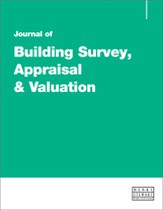What is the meaning of the oft-used words ‘vacant possession’?
Abstract
A requirement to give ‘vacant possession’ of premises is common in the property world. For instance, a tenant might be required to yield up vacant possession at its lease end or when exercising a break option. Additionally, the hypothetical circumstances assumed at rent review may require vacant possession. The words usually appear in a sale and purchase contract, will often constitute a requirement in a settlement reached between parties to a dispute, or even appear in a court order. What, however, do these words really mean and how does one know that the concept has been achieved? Be it a building surveyor negotiating a dilapidation settlement, a valuer assessing a rental level or a lawyer advising a vendor or purchaser, all have long awaited firm judicial guidance. The Court of Appeal has recently reviewed previous case law and Lord Justice Rimer in particular has given the guidance required (NYK Logistics (UK) Limited v Ibrend Estates BV [2011] EWCA Civ 683). This paper looks at the judgment delivered and at some of the issues it raises.
The full article is available to subscribers to the journal.
Author's Biography
Vivien King is a retired solicitor and consultant to Malcolm Hollis LLP, having been a highly regarded property litigation partner in well-known City of London firms. She now runs her own training company specialising in property law.
Citation
King, Vivien (2012, March 1). What is the meaning of the oft-used words ‘vacant possession’?. In the Journal of Building Survey, Appraisal & Valuation, Volume 1, Issue 1. https://doi.org/10.69554/DYIC3281.Publications LLP
